More GOP lawmakers enlist in Donald Trump’s effort to undo Joe Biden’s win

A growing number of Republican lawmakers are joining President Donald Trump’s extraordinary effort to overturn the election, pledging to reject the results when Congress meets next week to count the Electoral College votes and certify President-elect Joe Biden’s win. Sen. Ted Cruz of Texas on Saturday announced a coalition of 11 senators and senators-elect who have been enlisted for Trump’s effort to subvert the will of American voters. This follows the declaration from Sen. Josh Hawley of Missouri, who was the first to buck Senate leadership by saying he would join with House Republicans in objecting to the state tallies during Wednesday’s joint session of Congress. Trump’s refusal to accept his defeat is tearing the party apart as Republicans are forced to make consequential choices that will set the contours of the post-Trump era. Hawley and Cruz are both among potential 2024 presidential contenders. Senate Majority Leader Mitch McConnell had urged his party not to try to overturn what nonpartisan election officials have concluded was a free and fair vote. The 11 senators largely acknowledged Saturday they will not succeed in preventing Biden from being inaugurated on Jan. 20 after he won the Electoral College 306-232. But their challenges, and those from House Republicans, represent the most sweeping effort to undo a presidential election outcome since the Civil War. (Jan. 1) “We do not take this action lightly,” Cruz and the other senators said in a joint statement. They vowed to vote against certain state electors on Wednesday unless Congress appoints an electoral commission to immediately conduct an audit of the election results. They are zeroing in on the states where Trump has raised unfounded claims of voter fraud. Congress is unlikely to agree to their demand. The group, which presented no new evidence of election problems, includes Sens. Ron Johnson of Wisconsin, James Lankford of Oklahoma, Steve Daines of Montana, John Kennedy of Louisiana, Marsha Blackburn of Tennessee and Mike Braun of Indiana, and Sens.-elect Cynthia Lummis of Wyoming, Roger Marshall of Kansas, Bill Hagerty of Tennessee and Tommy Tuberville of Alabama. Trump, the first president to lose a reelection bid in almost 30 years, has attributed his defeat to widespread voter fraud, despite the consensus of nonpartisan election officials and even Trump’s attorney general that there was none. Of the roughly 50 lawsuits the president and his allies have filed challenging election results, nearly all have been dismissed or dropped. He’s also lost twice at the U.S. Supreme Court. The days ahead are expected to do little to change the outcome. “Joe Biden will be inaugurated on January 20th, and no publicity stunt will change that,” said Sen. Amy Klobuchar of Minnesota, the top Democrat on the panel overseeing the Electoral College count. Klobuchar said the Republican effort to create a federal commission “to supersede state certifications” is wrong. “It is undemocratic. It is un-American. And fortunately, it will be unsuccessful. In the end, democracy will prevail,” she said in a statement. The convening of the joint session to count the Electoral College votes is usually routine. While objections have surfaced before — in 2017, several House Democrats challenged Trump’s win — few have approached this level of intensity. On the other side of the Republican divide, several senators spoke out Saturday against Cruz and Hawley’s effort. Sen. Lisa Murkowski of Alaska said in a statement that she will vote to affirm the election and urged colleagues in both parties to join her in “maintaining confidence” in elections “so that we ensure we have the continued trust of the American people.” Sen. Pat Toomey of Pennsylvania said a “fundamental, defining feature of a democratic republic is the right of the people to elect their own leaders.” He said the effort by Hawley, Cruz, and others “to overturn the results of the 2020 presidential election in swing states like Pennsylvania directly undermines this right.” Earlier this week, Sen. Ben Sasse of Nebraska, another possible 2024 contender, urged his colleagues to “reject this dangerous ploy,” which he said threatens the nation’s civic norms. Caught in the middle is Vice President Mike Pence, who faces growing pressure from Trump’s allies over his ceremonial role in presiding over the session Wednesday. His chief of staff, Marc Short, said in a statement Saturday that Pence “welcomes the efforts of members of the House and Senate to use the authority they have under the law to raise objections.” Several Republicans have indicated they are under pressure from constituents back home to show they are fighting for Trump in his baseless campaign to stay in office. Sen. John Thune, the second-ranking Republican, told reporters at the Capitol that leadership was allowing senators to “vote their conscience.” Thune’s remarks as the GOP whip in charge of rounding up votes show that Republican leadership is not putting its muscle behind Trump’s demands, but allowing senators to choose their course. He noted the gravity of questioning the election outcome. “This is an issue that’s incredibly consequential, incredibly rare historically, and very precedent-setting,” he said. “This is a big vote.” Pence will be carefully watched as he presides over what is typically a routine vote count in Congress but is now heading toward a prolonged showdown that could extend into Wednesday night, depending on how many challenges are mounted. A judge in Texas dismissed a lawsuit from Rep. Louie Gohmert, R-Texas, and a group of Arizona electors trying to force Pence to step outside mere ceremony and shape the outcome of the vote. U.S. District Judge Jeremy Kernodle, a Trump appointee, dismissed the suit late Friday. To ward off a dramatic unraveling, McConnell convened a conference call with Republican senators Thursday specifically to address the coming joint session and logistics of tallying the vote, according to several Republicans granted anonymity to discuss the private call. The Republican leader pointedly called on Hawley to answer questions about his challenge to Biden’s victory, according to two of the Republicans. But there was no response because Hawley was a no-show, the Republicans
GOP-led Senate panel advances Barrett as Democrats boycott
Senate Judiciary Committee Republicans powered past a Democratic boycott Thursday to advance Amy Coney Barrett’s Supreme Court nomination to the full Senate, keeping President Donald Trump’s pick on track for confirmation before the Nov. 3 election. Democratic senators refused to show up in protest of the GOP’s rush to install Trump’s nominee to replace the late Justice Ruth Bader Ginsburg. Never has the Senate confirmed a Supreme Court nominee so close to a presidential election. All 12 Republicans on the committee voted in favor of Barrett, a conservative judge. No-show Democrats left behind posters at their desks of Americans they say have benefited from the Affordable Care Act, now being challenged at the high court. Senators plan to convene a rare weekend session before a final confirmation vote expected Monday. “Big day for America,” Trump tweeted after the committee vote. Barrett, 48, would lock a 6-3 conservative court majority for the foreseeable future. That could open a new era of rulings on abortion access, gay marriage and even the results of this year’s presidential election. Republicans have bristled at Democrats’ claim that the Obama-era health law, known as “Obamacare,” is in jeopardy if Barrett joins the court. But Trump told CBS’ “60 Minutes” that “it will be so good” if the court puts an end to the law. The court is set to hear a Trump-backed case against the health overhaul on Nov. 10. “I think it’ll end. I hope that they’ll end it,” Trump said in comments released Thursday by the White House before the interview airs Sunday. As the Senate committee met, protesters, some shouting “Stop the confirmation!” demonstrated outside the Capitol across the street from the Supreme Court. Some dressed as handmaids, a reference to Barrett’s role in a conservative religious group that once called high-ranking women members “handmaids.” Other demonstrators had “#SupportAmy” signs. The protesters drowned out Democratic senators who had called a news conference to decry what they called a “sham” confirmation process. Senate Democratic leader Chuck Schumer of New York said the Senate’s Republican majority “is conducting the most rushed, most partisan and the least legitimate nomination to the Supreme Court in our nation’s history.” “Democrats will not lend a single ounce of legitimacy to this sham vote,” he said. Unable to stop the confirmation, Democrats have been trying unsuccessfully to stall the process so the winner of the White House race could name the new nominee. With Republicans holding a 53-47 majority in the Senate, Trump’s pick for the court is almost certain to be confirmed. All Democrats are expected to oppose Barrett’s confirmation. “This is a groundbreaking, historic moment,” said Sen. Lindsey Graham, R-S.C., the committee chairman. “We did it.” Barrett, an appellate court judge from Indiana, appeared for three days before the committee last week, batting back Democrats’ questions. She was asked about her approach to legal questions surrounding abortion access, gay marriage and the nation’s tradition of a peaceful transfer of presidential power. Trump has said he wants a judge seated in time to hear any potential disputes arising from the upcoming election. Barrett declined to say whether she would withdraw from participating in such cases. Sen. Ted Cruz, R-Texas, said the court fight will be perhaps the “single most important accomplishment” of Trump’s presidency. Republican senators ridiculed the Democratic boycott as election-year antics. “Rather than show up and do their job, they continue the theater,” said Sen. John Cornyn, R-Texas, pointing out the posters at the Democrats’ desks. Sen. Mike Lee, R-Utah, called the boycott “a walkout on the American people.” But Democrats on the committee insisted the Republicans were rushing the nomination to tip the court even further to the right. Sen. Mazie Hirono, D-Hawaii, called Barrett a “clear and present danger” to the values Ginsburg fought for on the court. “I stand here for Justice Ginsburg,” said Sen. Amy Klobuchar, D-Minn., urging Americans to vote their protests at the ballot box. Many judicial nominees decline to discuss their views on various issues, saying they will consider the cases as they come. Barrett took a similar approach, drawing deep skepticism from Democrats because she had previously spoken out against abortion and past rulings on the health law. Barrett released dozens of answers this week to additional questions senators had posed, but her responses were similar as she declined to weigh in on whether the landmark Roe v. Wade abortion ruling is a “super precedent” of the court or whether the president could unilaterally change the date set in law for the election. Senate Majority Leader Mitch McConnell, R-Ky., has defended Barrett as “exceptionally qualified” as well as his own decision to push her nomination forward. He had refused to consider President Barack Obama’s nominee in February 2016, saying it was too close to a presidential election that year; Obama was in his second and final term. Republicans have focused on Barrett’s Catholic faith, calling her a role model for conservative and religious women. Republicans also warn that Democrats will “pack the court” by adding more justices if they win the White House and the Senate, although key Democrats have not said that would be a priority. Joe Biden said last week he’s “not a fan” of adding justices to balance the court ideologically. But during his own interview with “60 Minutes,” an excerpt of which CBS released Friday, Biden said he won’t rule out studying the addition of members as part of a commission he plans to name to look at court changes if he’s elected. Republished with the permission of the Associated Press.
Democrats claim ‘big tent’ for first convention in pandemic
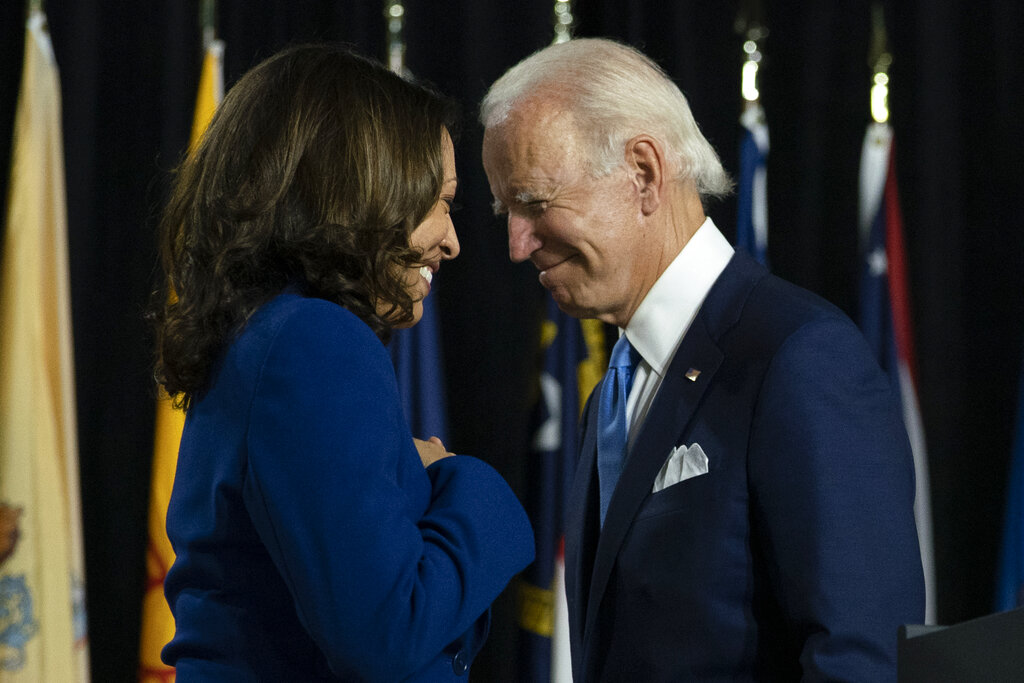
The extraordinary ideological range of Biden’s many messengers on the opening night of the 2020 Democratic National Convention was perhaps best demonstrated by former presidential contenders from opposing parties.
Leading in pandemic becomes part of audition for Joe Biden’s VP
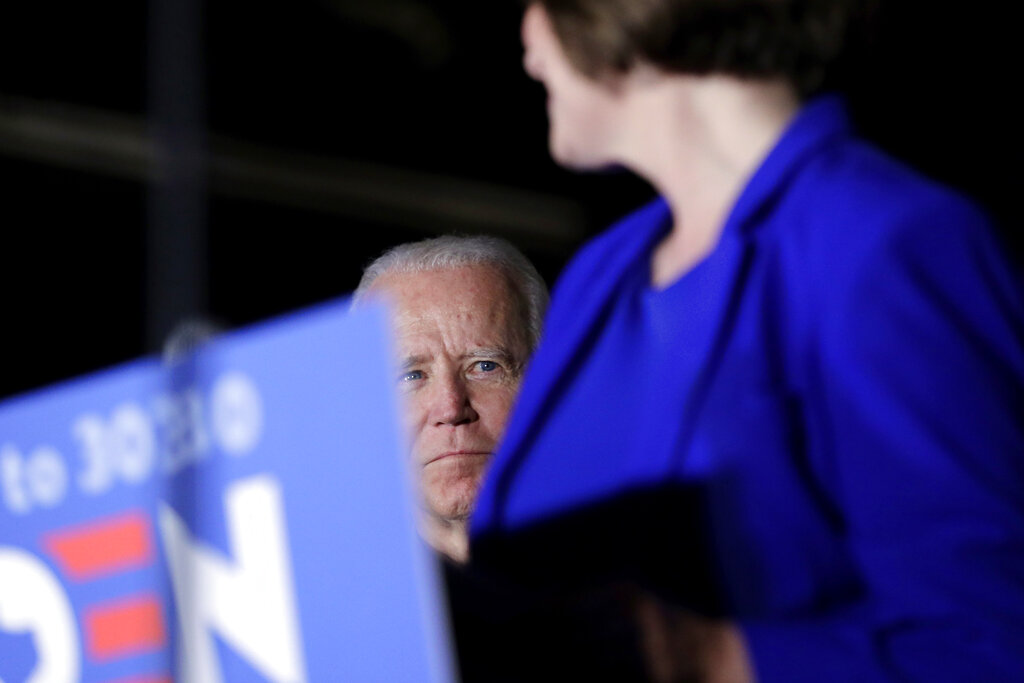
Responding to the COVID-19 pandemic has become an unexpected part of the audition.
Coronavirus makes it harder for campaigns to ask for money
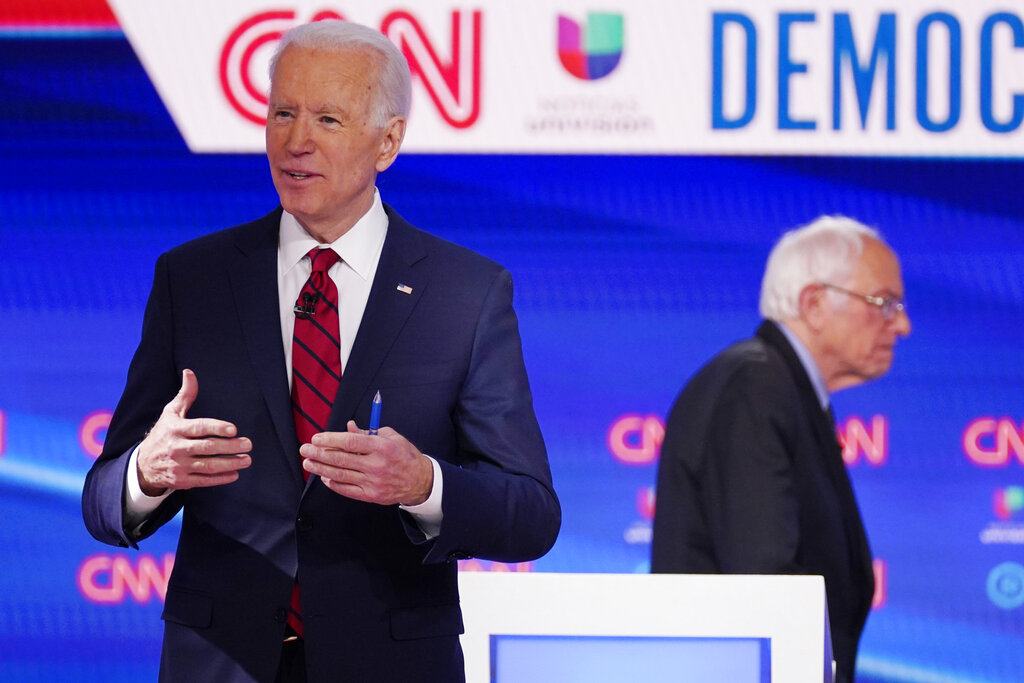
What used to be a routine request for political cash could now come across as tone-deaf or tacky.
Kamala Harris endorses Joe Biden; Jesse Jackson backs Bernie Sanders
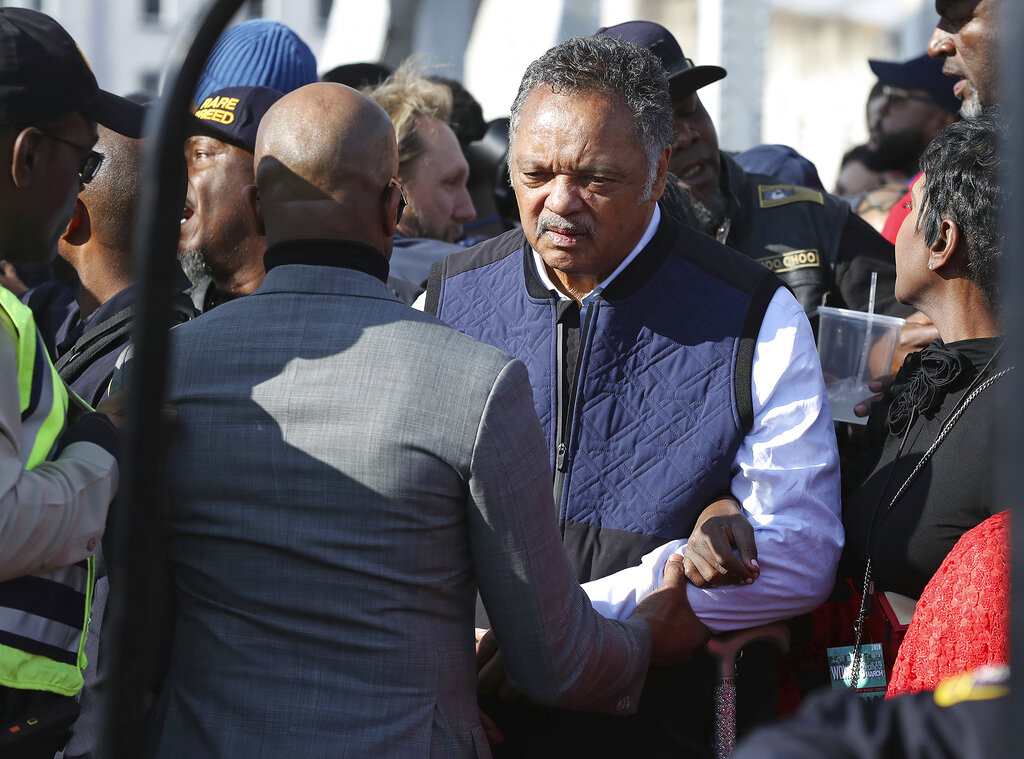
Biden and Sanders have been consolidating their support since Super Tuesday.
Bernie Sanders struggles to expand supporter base after Elizabeth Warren exit
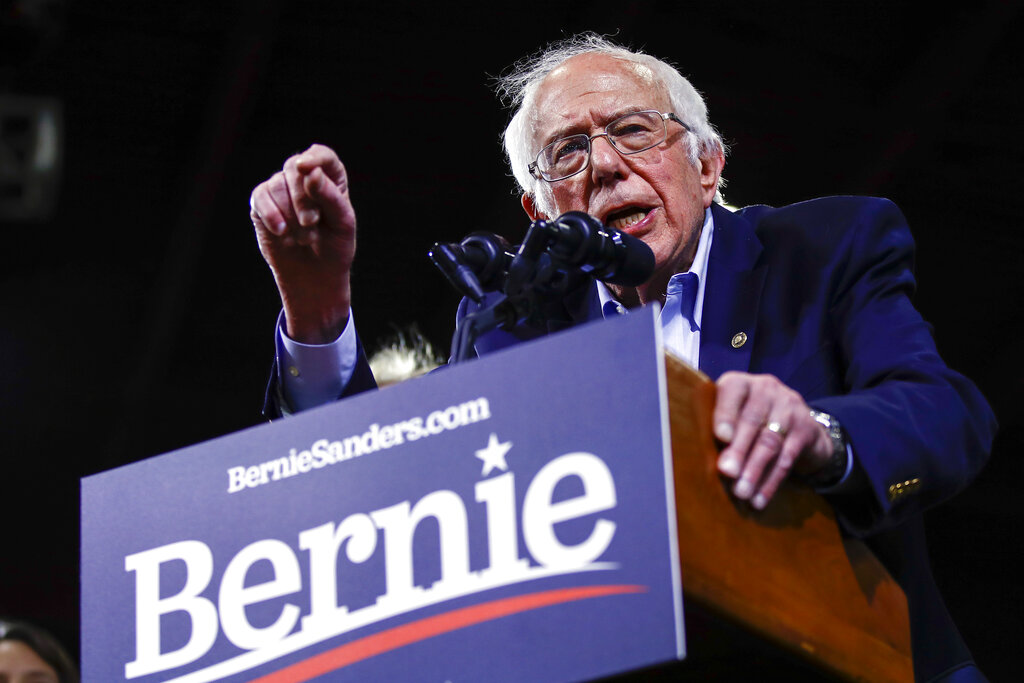
Elizabeth Warren declined to endorse anyone when she suspended her campaign for President.
Mike Bloomberg out, Joe Biden buoyed
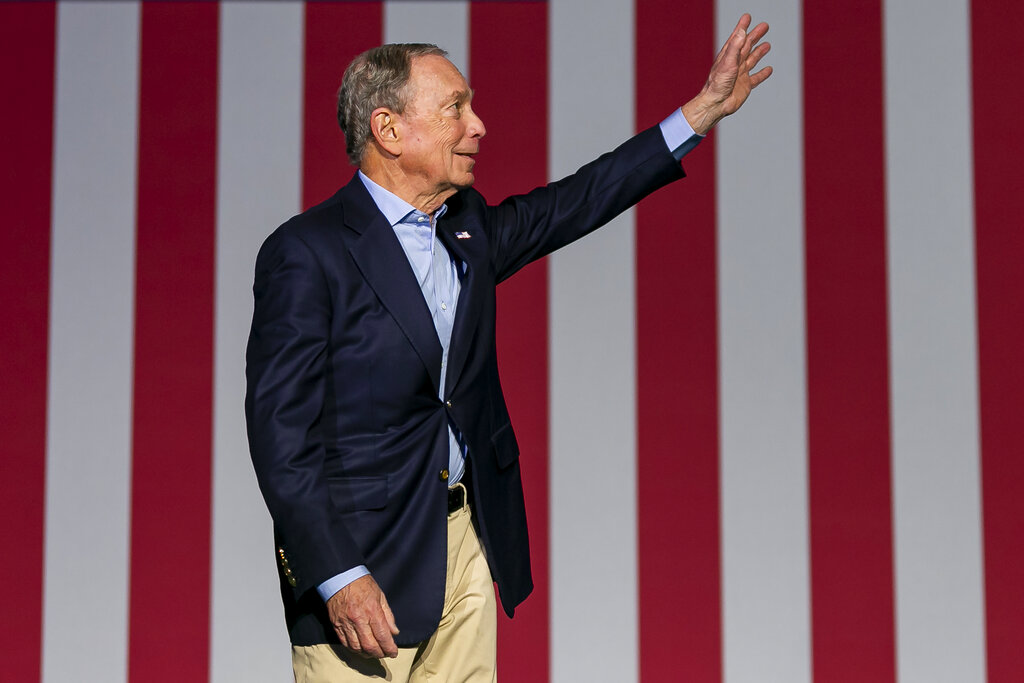
On the biggest day on the primary calendar, Mike Bloomberg did not win any states, while Joe Biden and Bernie Sanders each won several.
Bernie Sanders wins top prize, California; Joe Biden surges nationwide

Biden and Sanders picked up large numbers of delegates on the biggest night in the nomination process thus far.
On Super Tuesday eve, Joe Biden gets boost from former rivals
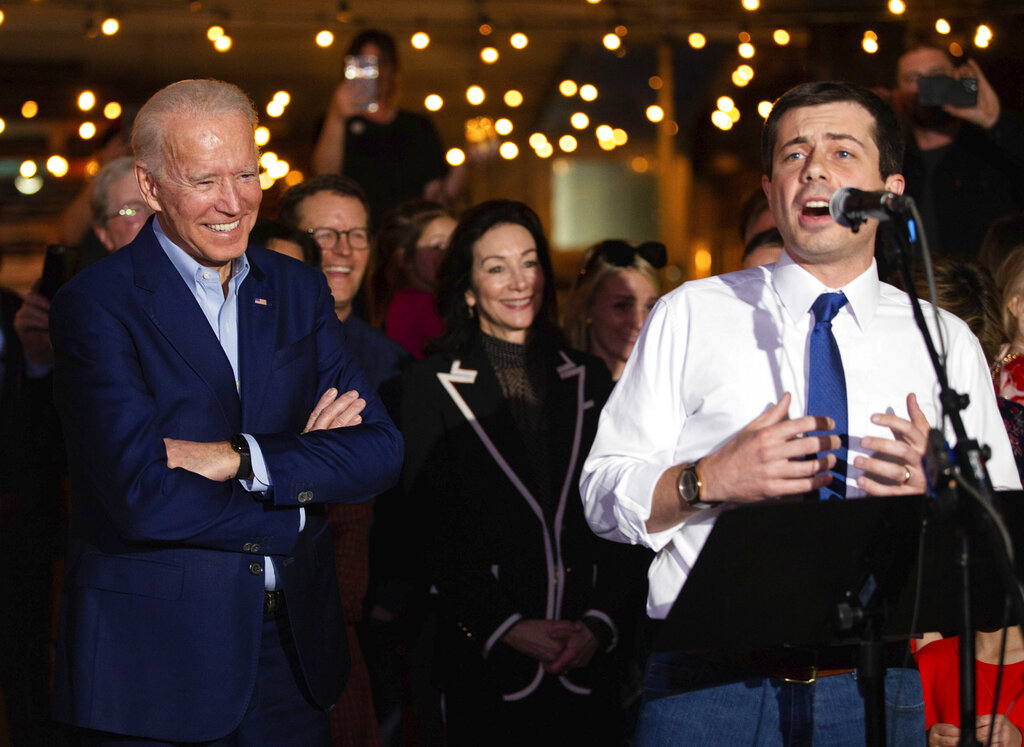
Biden received the support of former rivals, Pete Buttigieg and Amy Klobuchar.
Donald Trump lobs fresh barbs at Dems, rallies GOP faithful in NC
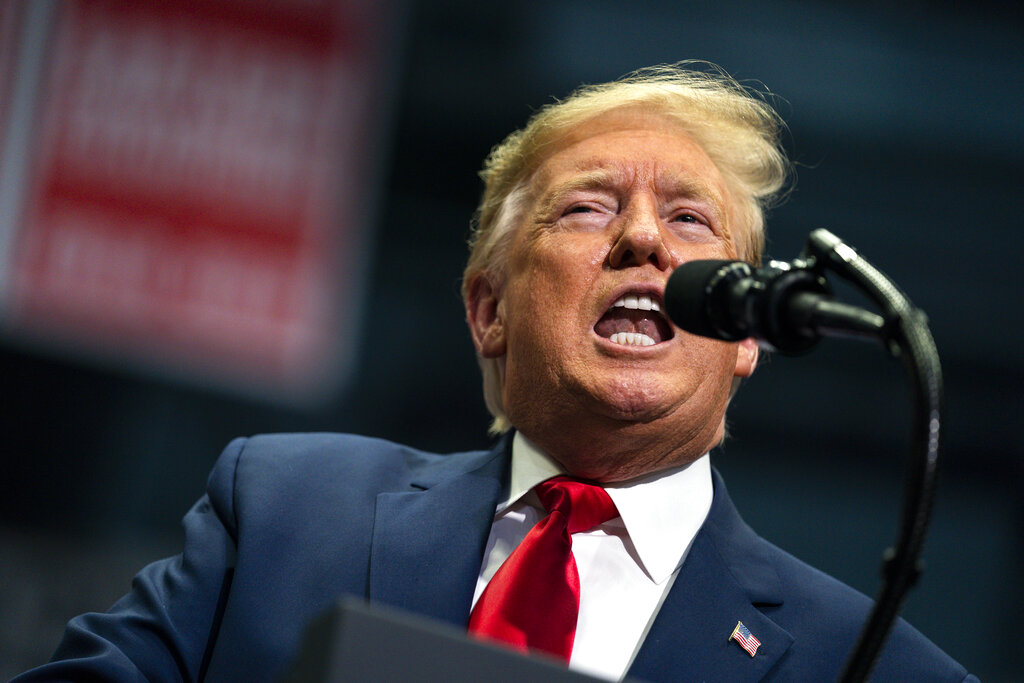
The president threw some of his hardest punches at former Vice President Joe Biden.
Pete Buttigieg ends historic presidential campaign, urges unity

The announcement came a day after one of Buttigieg’s rivals, Joe Biden, scored a strong victory in South Carolina.

